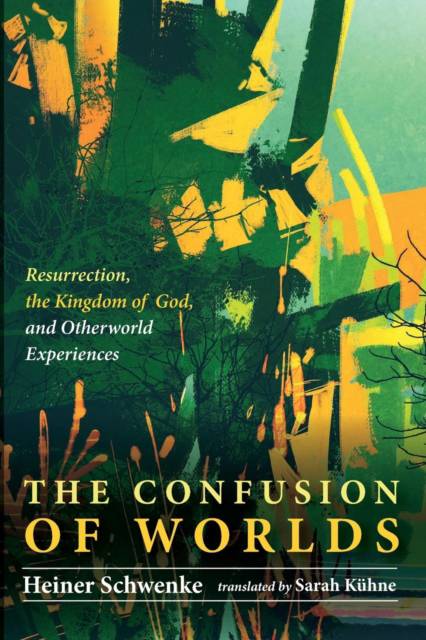
- Retrait gratuit dans votre magasin Club
- 7.000.000 titres dans notre catalogue
- Payer en toute sécurité
- Toujours un magasin près de chez vous
- Retrait gratuit dans votre magasin Club
- 7.000.0000 titres dans notre catalogue
- Payer en toute sécurité
- Toujours un magasin près de chez vous
The Confusion of Worlds
Resurrection, the Kingdom of God, and Otherworld Experiences
Heiner Schwenke
Livre broché | Anglais
43,45 €
+ 86 points
Format
Description
The idea of the resurrection of the physical body and the eternal continuation of life with this body in a future paradisiacal kingdom of God on earth is one of the most enigmatic of religious ideas. It fully contradicts our knowledge of the transitoriness of all things in this universe. According to the author, the origin for this idea lies in certain forms of otherworld experiences, as, for example, reported by people who had near-death experiences: encounters with the dead in brilliantly beautiful bodies and the experience of paradisiacal, seemingly earthly landscapes. He observes that cultures with a pre-modern cosmology sometimes projected such otherworld experiences onto this world, to distant and unknown locations on earth. These experiences were the blueprint for an expectation of paradisiacal conditions on earth. The author establishes parallels between the reports of otherworld experiences and the eschatological ideas of Zoroastrianism, Judaism, and Christianity. He shows that otherworld experiences can indeed foster the expectation of paradisiacal conditions on earth by referring to the Ghost Dance movement of the Lakota people in 1890. He presumes that the confusion of worlds proved fatal not only for the Lakota people but also for Jesus of Nazareth.
Spécifications
Parties prenantes
- Auteur(s) :
- Traducteur(s):
- Editeur:
Contenu
- Nombre de pages :
- 232
- Langue:
- Anglais
Caractéristiques
- EAN:
- 9781532656026
- Date de parution :
- 31-01-19
- Format:
- Livre broché
- Format numérique:
- Trade paperback (VS)
- Dimensions :
- 152 mm x 229 mm
- Poids :
- 317 g

Les avis
Nous publions uniquement les avis qui respectent les conditions requises. Consultez nos conditions pour les avis.






